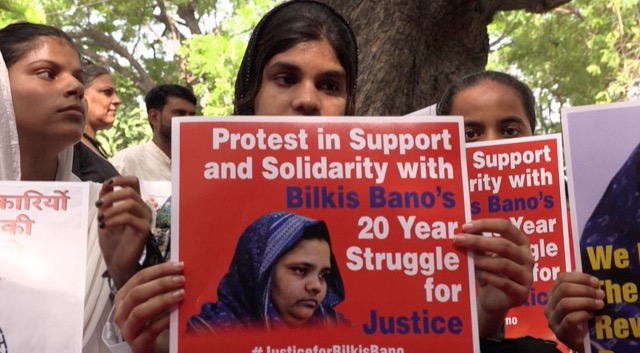A Special court in Ahmedabad, India, which was formed to hear the Gujarat 2002 riot cases, finally delivered a verdict on Thursday 20th April acquitting 69 Hindu nationalists alleged to have been involved in what was described as a pogram against Muslims. The particular case which concluded Thursday, related to the deaths of 11 Muslims whose homes in the city of Ahmedabad were set on fire by Hindu mobs in February 2002. The case was just one of many being heard by the Special Courts on the issues relating to the Gujrat Riots 2002, which claimed hundreds of lives during the rioting which ensued at the time.
Pogrom against minority Muslim community in Gujarat
The notorious Gujarat riots of 2002, referred to by many scholars as a pogrom, according to civil and human rights groups, were responsible for the deaths of an estimated 1926 Muslims across the western state of Gujrat. The riots, which engulfed the region, took place after a train carrying Hindus caught fire and the resultant deaths of 58 Hindu pilgrims, were blamed on Muslims. The ensuing violence saw the minority Muslim population in Gujarat targeted as indiscriminately as men, women and children were set upon in the streets and their houses burnt to the ground or destroyed. There were multiple cases of rape, serious injuries and looting which devastated the Muslim community.
Navendra Modi alleged to be culpable in riots
At the time, Navendra Modi, the then Chief Minister of Gujarat (later to become India’s Prime Minister) was accused of complicity in the violence along with many of his police and government officials, all of whom are alleged to have fed intelligence to rioters with details of Muslim owned properties. Attempts at indicting Modi and his counterparts were foiled by a so called ‘Special Investigation Team (SIT)’, which ignored calls suggesting that evidence had been deliberately suppressed, and eventually rejected all claims of complicity ten years later in 2012 at the conclusion of their investigation.
Decades of intimidation by high-ranking politicians
Thursday’s verdict to the many who have waited twenty years for justice – individuals who are related to those who were killed or suffered as a consequence of the shameful events, will now feel that salt has been added to their wounds. Not least because they have had to endure decades of intimidation by high-ranking political figures, some of whom are now serving in Prime Ministers Modi’s government. They will have noted with particular distress, the fact that one of the 69 accused, Maya Kodnani, now acquitted, was a former minister in Modi’s administration. Kodnani had been accused of complicity in the murder of 97 people during the riots at an earlier trial, had been found guilty and then later acquitted at a higher court hearing.
Early release of riot rapists and murderers challenged by victim’s family
Recent court rulings have seen the early release in August last year, of 11 Hindu prisoners who had in a rare case been successfully convicted of the gang rape of a 5 month pregnant Muslim woman, Bilkis Bano and the killing of members of her family including her three year old daughter, during the same riots. The family of the victims challenged their early release in the Supreme Court, which was apparently made on the grounds of the ‘good behavior’ of the convicts. The family had also filed a review petition against the apex court’s order permitting the Gujarat government to decide on the remission of the convicts. Final disposal of the courts is expected on May 2nd.
Many of the accused who were acquitted were members of right-wing Hindu nationalist groups such as Bajrang Dal and Vishwa Hindu Parishad, organisations with close links to the India ruling party BJP.

















